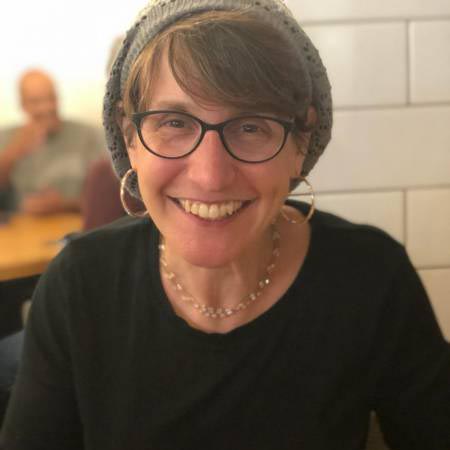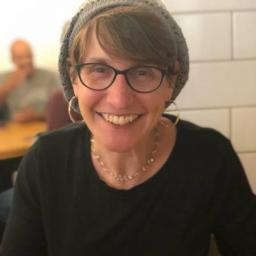Leveling Up
So you have this idea.
Maybe this idea has been in the back of my mind for awhile.
Maybe it is new.
Maybe this idea isn’t so much of an idea, but a nagging in your heart that tells you that you are in the right place and the right time and that now is when you could address an issue if you put your mind to it.
So there is this nagging feeling that you want to do this thing, to bring this idea forward, to elevate your school, to bring us up to next level—to accelerate us, to level up.
And now you ask yourself:
How should I design it so it will work?
What do I need to know and do to set it up for success?
You wish:
If only I had the time, the space and the people to step away from it all with me for a little bit, so that I could develop this thing.
If only I had a coach to help guide me.
If only I had access to voices and opinions of people I trust, but maybe whom I do not work with, who could help me see what I am missing and how my ideas may impact areas in the school.
If only I could ask experts out there what they think even before I bring my idea to my team.
If only I could do all of this while still working full time and not traveling.
This was the thinking that the program called Leveling Up was designed to address.
So often, we meet educational leaders who have ideas, small ones that tweak us for good and larger ones that can change a school’s trajectory, and the thing that keeps them from taking their idea and bringing it to fruition is this piece of the puzzle. This “pre-work” step that sets you up for the pitch and the plan. So we, at Prizmah, got together and imagined what we could do to address this place in time for our leaders.
Here is what we came up with:
A three-part process with both synchronous and asynchronous components, elements that harness the power of thinking of experts in the field, and elements that provide the structure and process for each leader to plan in his or her given context and unique situation.
We invited schools to send us teams of two to go through this experience together and help one another design a proposal that would accelerate improvement and excellence in their schools. Each team was given a playbook to take them through the process and help guide them in their thinking. The playbook included a personal reflection sheet, a self-assessing survey of the strengths of the school and worksheets to help leaders focus their goals based on the school’s values and mission. The other key element of our program was creating small groups of educational leaders who would establish trust and offer one another suggestions, ways of approaching challenges, resources and unique insight and perspective.
It took us one three-hour session to kick the program off, explain the process, and establish our groups of trust, which we called PBOT: Personal Board of Trustees.
Once the first synchronous piece was done, each participant had nine days to work on their playbooks and write a plan. During this time, each team received a coaching call, and this became one of the highlights and transformational points of the experience.
Questions from coaches:
Tell me about your why.
How do you know this is a need?
How will you know you succeeded?
What may stand in your way?
What strengths do you and the school already have?
Who can you bring on board?
What might it take for you to be successful?
During the calls, coaches helped each person crystallize his or her goals and proposal so it was clear and concise. Each participant was asked to prepare slides to share when we would meet synchronously again, and on the slides, each person would share basic background information about the school, the goals of the program, the needs it hoped to meet and the ways we might measure your success. Each participant would then ask the group of educational leaders in his or her group to reflect on a specific question or aspect of the plan they want help thinking through. This protocol was followed for each person in each of the PBOT groups.
During the coaching calls, teams from the school had time set aside, with the help of an unbiased voice, to formulate their goals clearly and come up with their why and their focus. When we came together again to share our ideas in our small groups, we followed a standard protocol to present and offer feedback.
The teams left their sessions with the following:
A more clear and focused plan
A greater sensitivity and understanding of how their topic, along with others, impacts many areas in the school
Insight and wisdom about their own possible blind spots
A group of colleagues in the field they can reach out to in the future
A model for planning that they can bring to their schools and communities
Change is difficult. We reviewed classic change theory approaches (see slides), of which there are many that are valid and exciting. One thing is clear: when there is a change, it must be rooted in values and mission in order to take root and elevate.
The program design presented a new challenge for us at team Prizmah. On the one hand, many aspects of this design were familiar to us, like workshops, webinars, asynchronous programs and even the design of the playbook mimicked a high level worksheet. All of the pieces alone have been done before, but this unique combination of elements was a first for us and for many in the field. We want to thank the folks who participated in trusting us with this new model.
The many modalities, the many voices and the many exciting ideas all converged together to accelerate changes and improvement in thinking, planning, design and program that will surely help us to “level up.” We hope that schools will use this model and the modalities we offered to accelerate changes in their schools and communities.

Rachel Dratch is Prizmah’s director of educational innovation.



